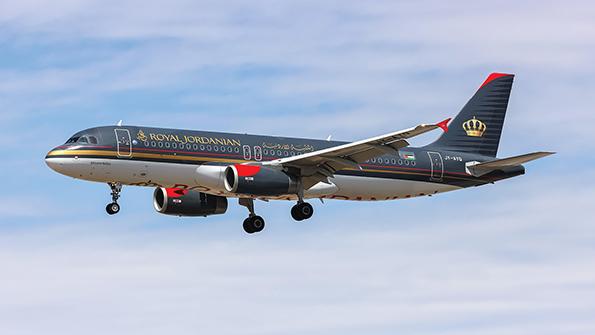
CEO Samer Majali said a leasing contract to boost the airline’s fleet of A320neos and A321neos will begin fulfillment by year’s end.
Credit: Zoonar-Markus Mainka/Alamy Stock Photo
Royal Jordanian (RJ) is working to negotiate through the fraught geopolitical situation in the Middle East region, while also undergoing a major expansion. The conflict in Gaza has placed the region on high alert. While not minimizing the human tragedy of the situation, RJ CEO Samer Majali is...
Royal Jordanian CEO Plans For Growth Despite Challenges is part of our Air Transport World subscription.
Subscribe now to read this content, plus receive full coverage of what's next in air transport from the experts trusted by the global air transport community. Every article focuses on what airline management professionals need to run their airline, including crucial analysis and insights in financing, airframes and engines, environmental and regulatory pressures and much more.
Already a subscriber to ATW or an AWIN customer? Log in with your existing email and password.





